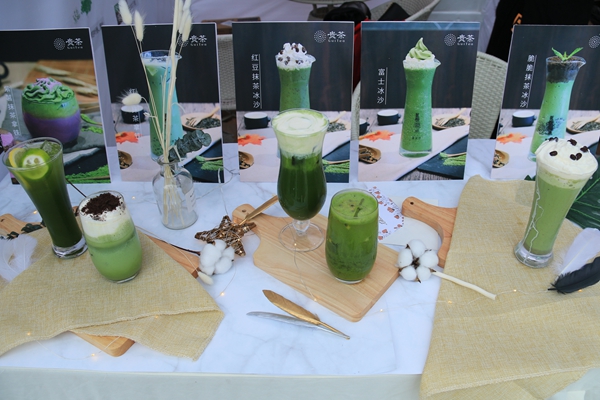Matcha without match
By Cheng Yuezhu/Yang Jun | China Daily | Updated: 2020-07-21 07:46

"Our village now has four tea-processing plants and over 260 tea-processing machines."
One of the most evident advantages of matcha, Que says, is that its raw materials are not as restricted as traditional tea.
"Traditional brewed tea mainly uses spring tea leaves, so the plantations used to only harvest in the spring. Matcha production allows the tea leaves picked in summer and autumn to be used and generates income year-round."
The cooperation has helped the village solve the problem of tea sales. And the tea factories have provided sufficient job opportunities for locals-so much so that they now go to other towns to recruit workers.
"Our tea plantations meet international standards and have stricter management requirements," Que says.
"So, we're able to provide more jobs for villagers, and their salaries are also at least 10 percent more than before. We pay around 2.3 million yuan to our workers annually."
Yang also says that the tea and matcha production has substantially improved local living conditions.
"Eight percent of households now have a car. Over 300 families have renovated their houses, and many have bought residences downtown."
More villages in Nuxi are following Luoxiang village's lead. The town hosts over 10 tea-processing plants, including six for matcha, and 18 production lines. About 2,000 hectares of tea fields have been planted.
Tongren Gui Tea has been awarded several international certifications, including the Rainforest Standard, ISO 9001, ISO 22000 and the AIB Standards, allowing it to enter international markets.
"Our matcha powder is now exported to companies around the world, including in the United States, Germany, France and Brazil," Hu says.
"Last year, our exports accounted for one-10th of our total sales."
The company is experimenting with its own matcha products by establishing a matcha institute in Guizhou's capital, Guiyang, to develop a wide range of matcha products, such as cakes, ice creams and biscuits.
The institute also allows visitors to make their own matcha lattes to provide an enhanced experience and promote matcha culture.
























